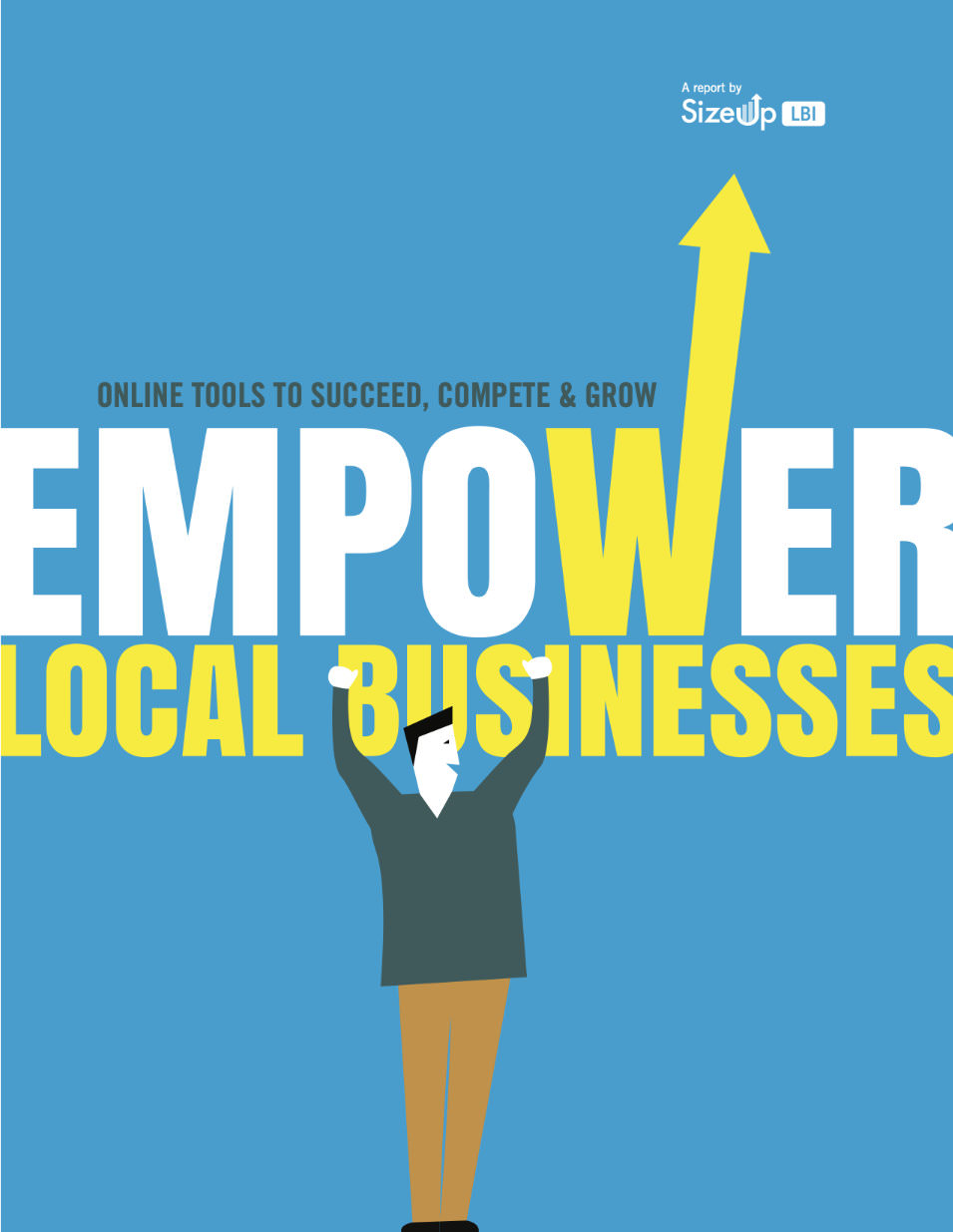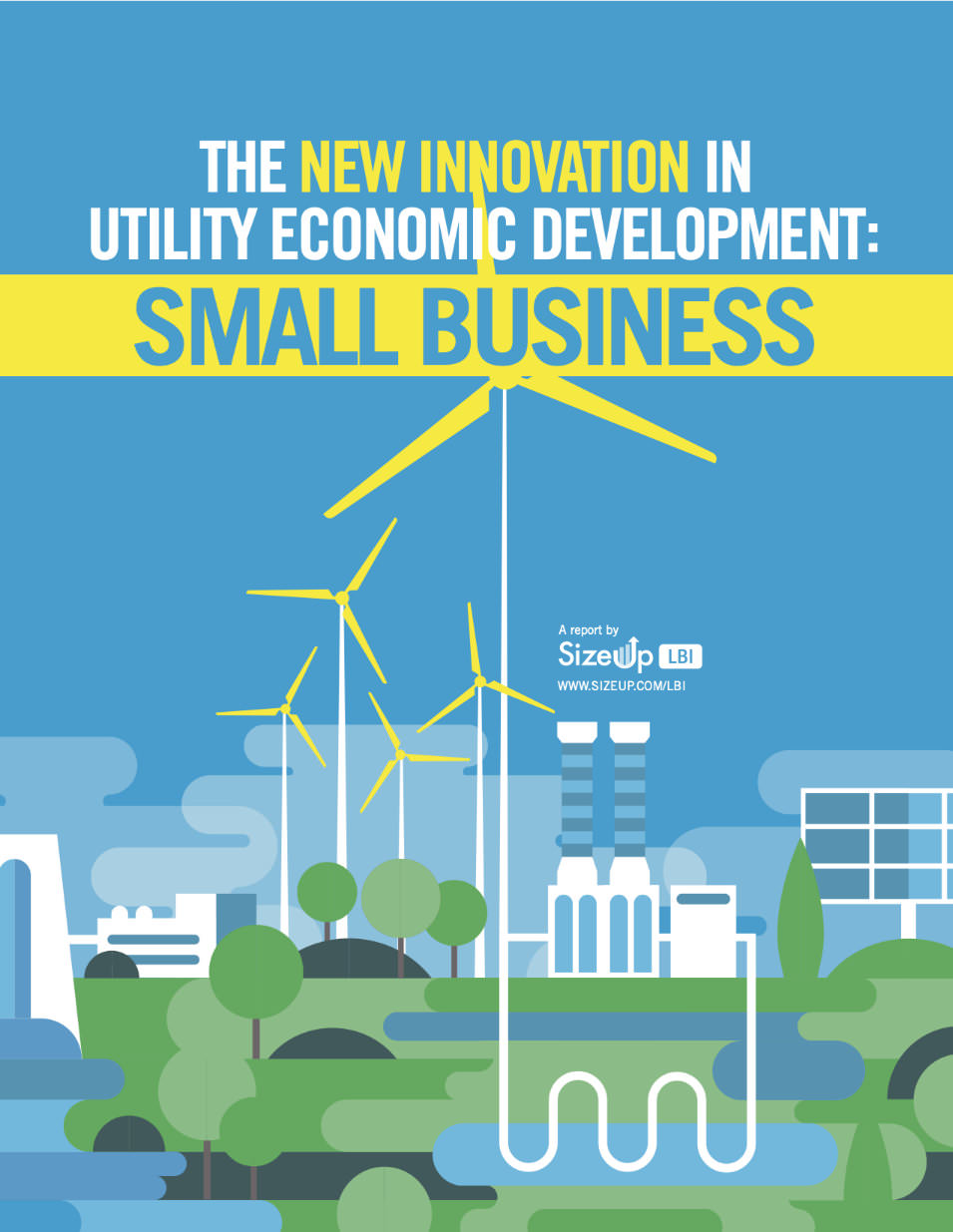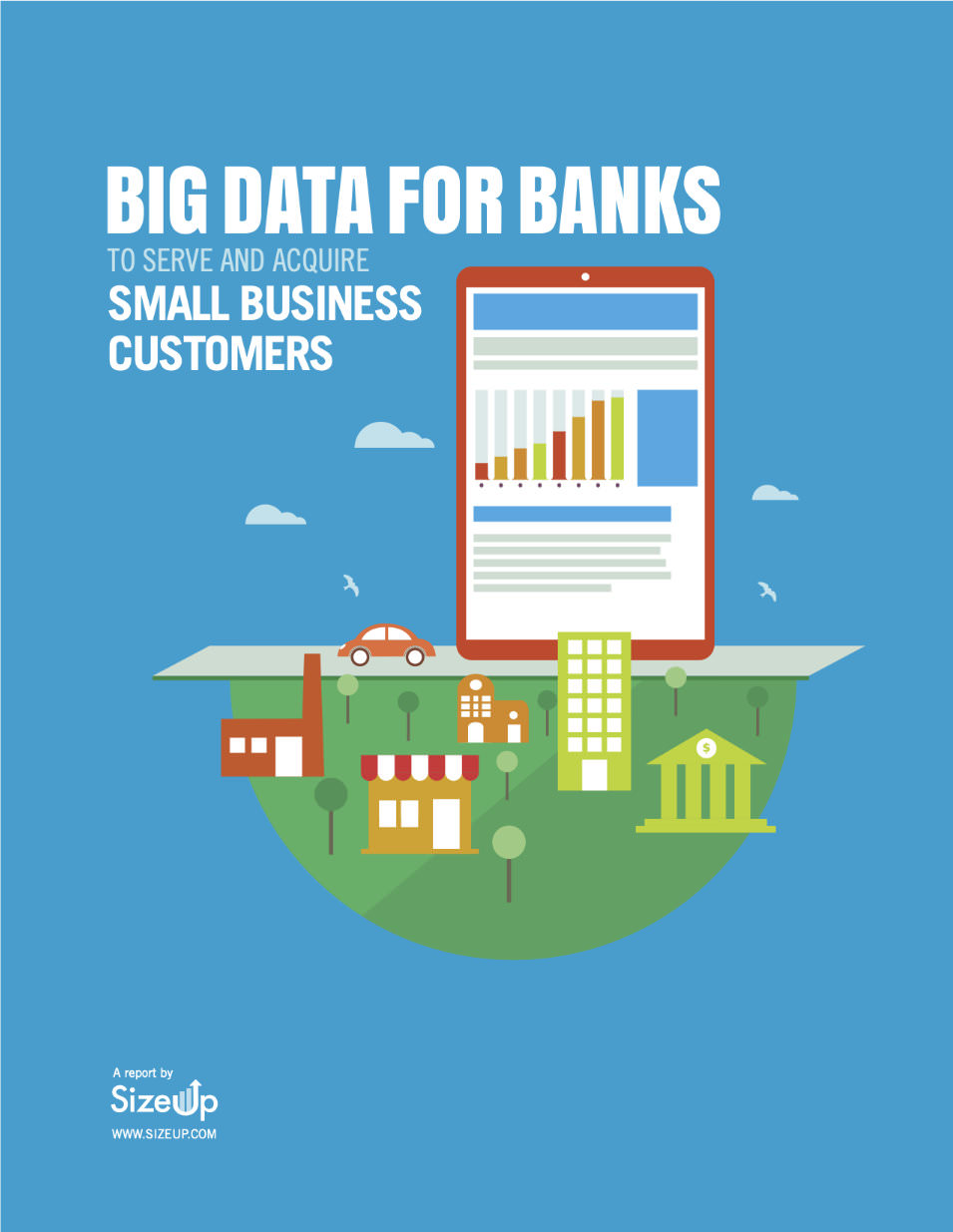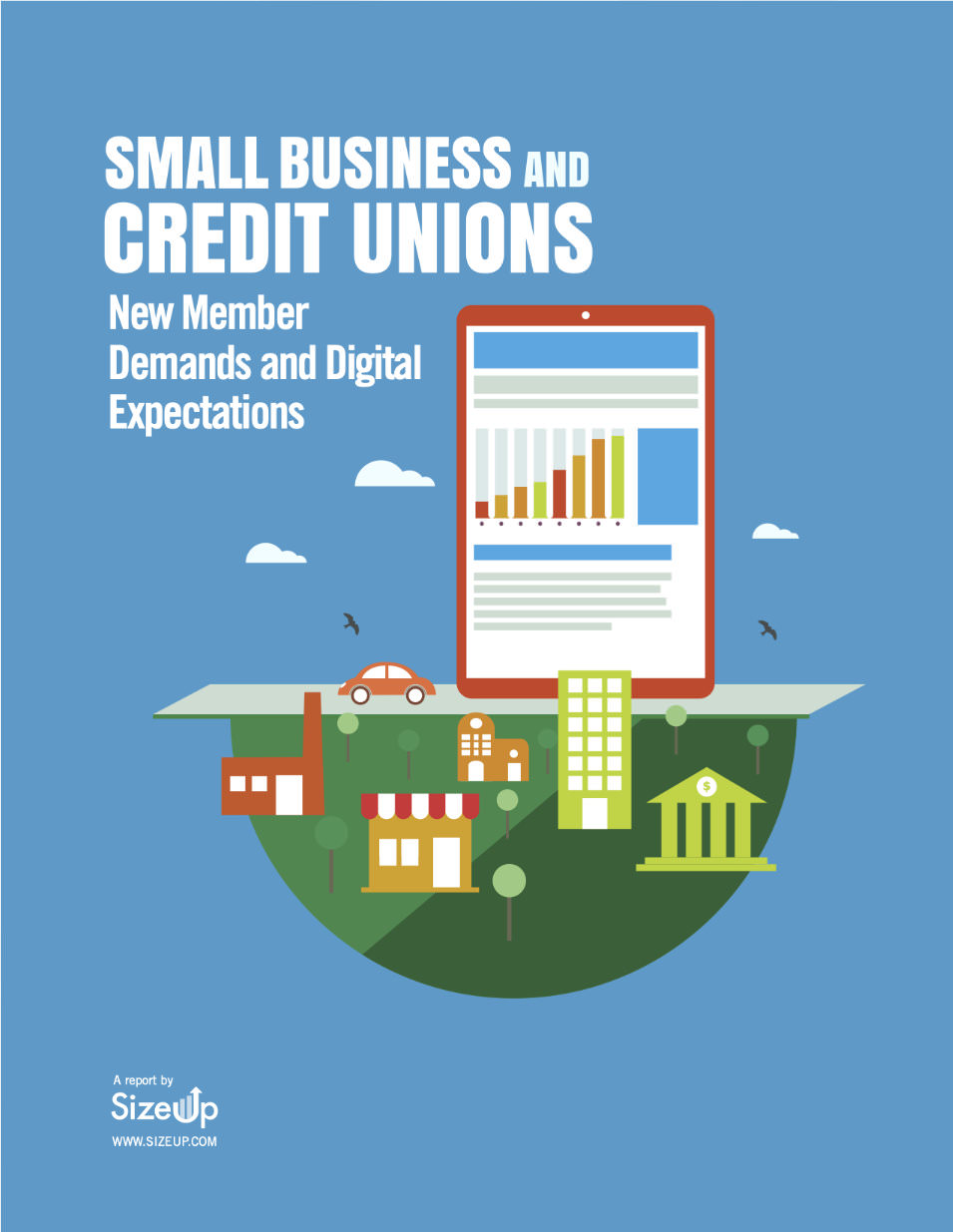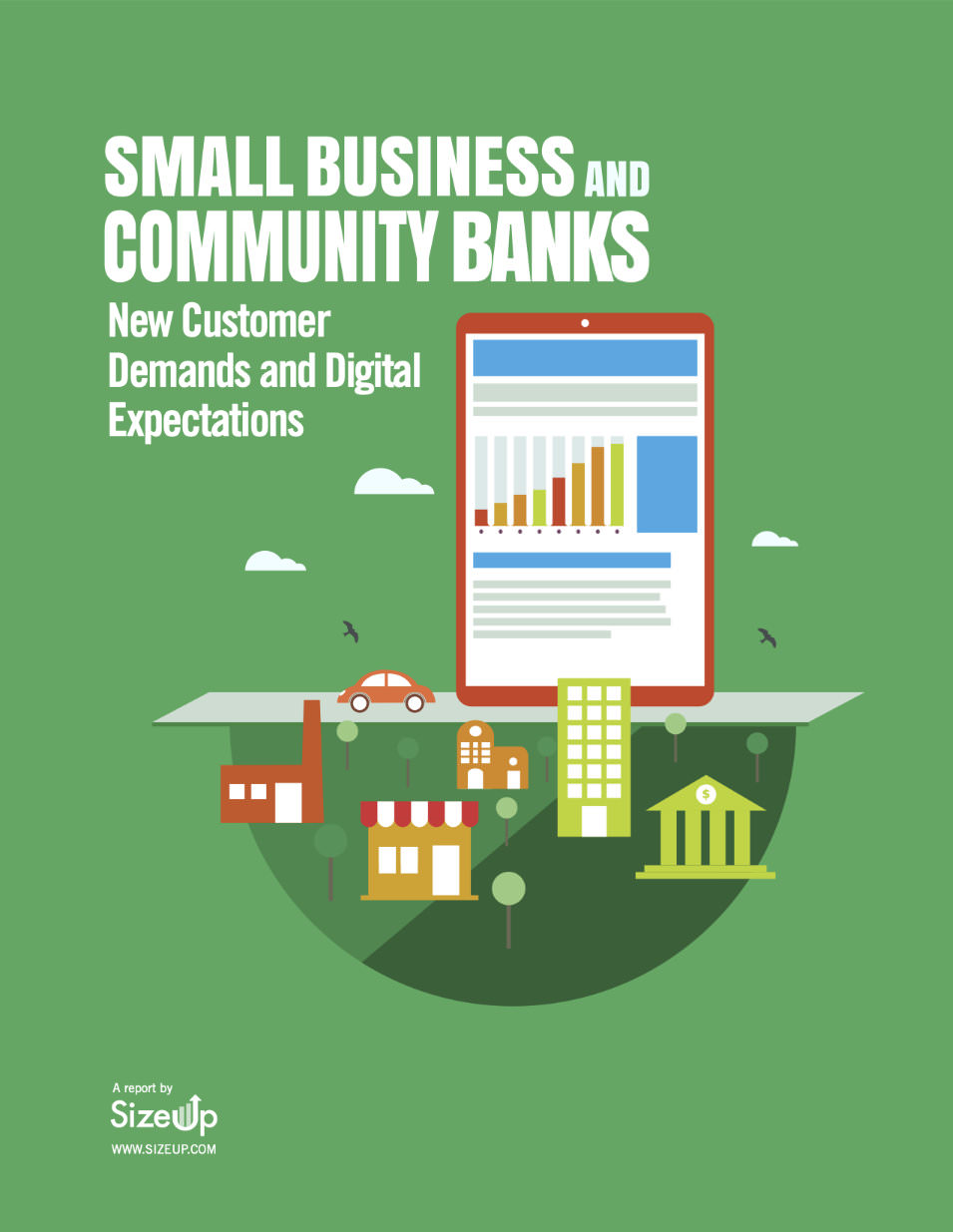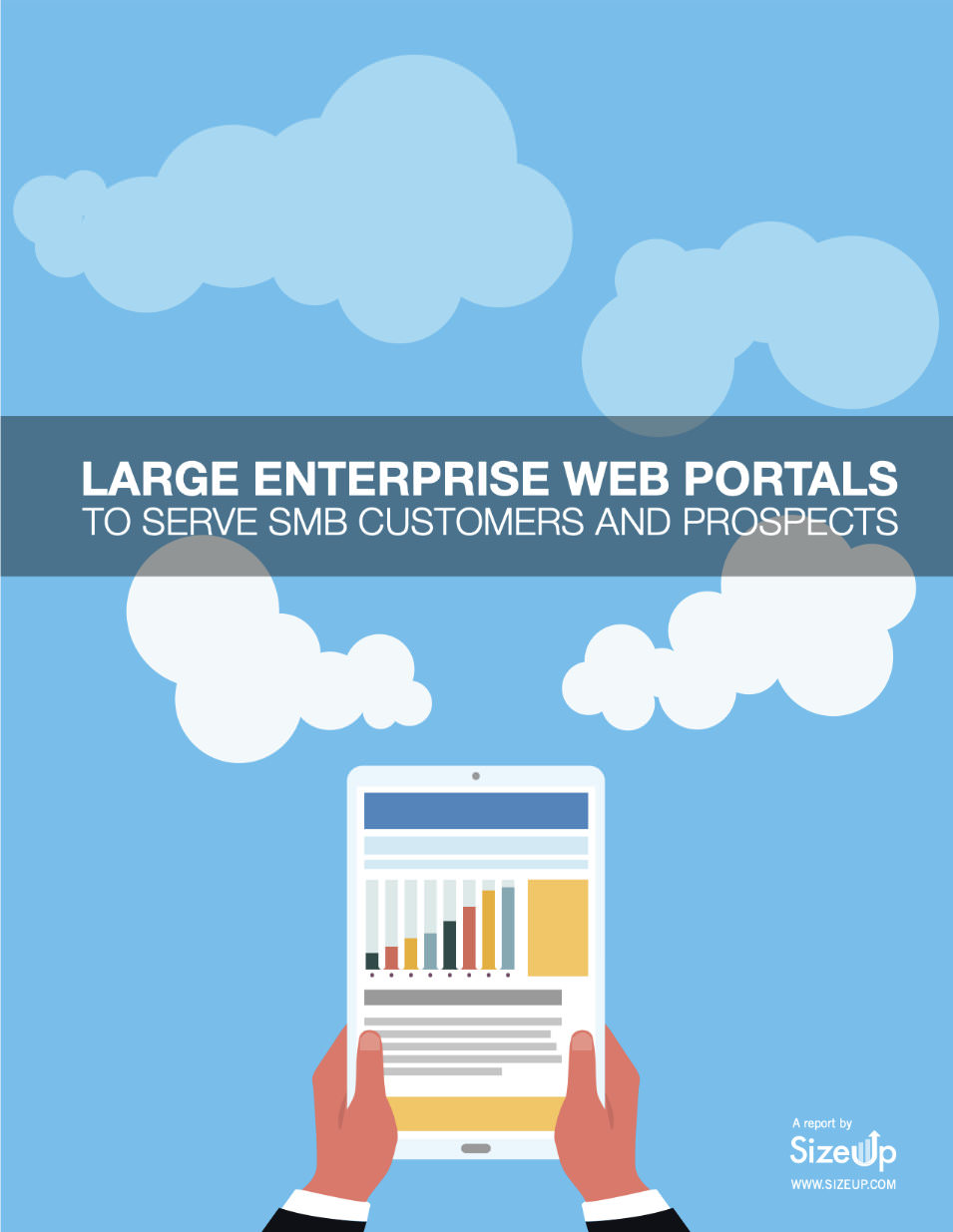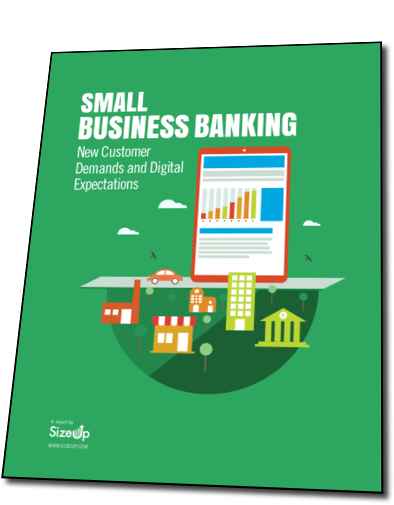
Small Business Banking: New Customer Demands and Digital Expectations
Serve, Acquire, and Retain Small Business Customers.
BUSINESS BANKING CHALLENGES
Banks wanting to retain and attract small business customers face opportunity and risk caused by changing customer expectations. Small businesses want more form their banks than just traditional services. Also, they want digital services including those that help their business succeed.
Value for financial institutions that implement big data for small business customers
Implementing big data insights for SMB customers using SizeUp FI provides FIs significant value and solutions to challenges they are facing.
SMALL BUSINESSES WANT MORE THAN BANKING
Banks must expand their small business services beyond the traditional banking service…
BIG DATA FOR SMALL BUSINESS
WHAT SMALL BUSINESSES WANT FROM THEIR BANKS
Small business’ expectations are evolving and expanding what they expect their banks to provide…
SERVING BANK CUSTOMERS THROUGH THEIR ENTIRE LIFECYCLE
HOW BANKS USE SIZEUP TO ACHIEVE STRATEGIC GOALS
SizeUp is customized to meet the business objectives of your bank…
WHEN BANKS BECOME PARTNERS FOR SME CLIENT SUCCESS
Highlights from the report
Small Businesses Want More than Banking
Boston Consulting Group’s study of SMEs (small and medium enterprises) shows that quality of service, being a trusted advisor, and delivering credit are key roles for banks and that there is additional desire from SMEs that their banks deliver digital and value-added services. Also, the SME experience with their bank should be as easy as their experience with Amazon.com.[1]
Research from Accenture shows that small business satisfaction with banks would increase if fees are lowered. However, doing so would be a race to the bottom, turning the bank into a commodity. Instead, banks should change the conversation from “cost” to “value” and that it is a priority to move from “financial services provider” to “SME business partner.” This can be accomplished by providing value-added services in a number of areas. The white paper SME Banking 2020: Changing the conversation and capturing the rewardsexplains, “Our research shows that 31 percent of SMEs are looking for closer engagement with their bank as a source of proactive ideas, including the financial and non- financial assistance that will help them to optimise their businesses.”[2]
PWC’s research also recommends that banks, “Look beyond the limits of traditional banking. To date, when serving SMEs, banks have mostly focused on their traditional areas of strength, such as cash management and financing. But they should be thinking of providing adjacent services, such as creating e-shops, undertaking payroll processing, and offering access to networking opportunities and communities.”[3]
However, there is stiff competition to provide support and advice. The competition is coming from other banks, accountants, lawyers, and new Fintech players that are entering the small business space with digital offerings.[4]
Summary: 4 key themes:
- Small businesses want banking plus value-added services from their banks.
- Small businesses want their bank to be their partner in their company’s success.
- There is competition from other banks, Fintechs, and service providers to provide value-added services for small business customers.
- Services to SMEs must be as easy to use and have the customer experience people experience from the likes of Amazon.com.
What Small Businesses Want from their Banks
According to BCG’s research, the following are the top digital features desired by small businesses from their bank:[5]
| Feature | Desire |
|---|---|
| 1. End-to-end online fulfillment | 94% |
| 2. Single customer view and sign-on | 77% |
| 3. All products accessible with one click | 77% |
| 4. Peer group comparison | 71% |
| 5. Option to tailor products | 69% |
| 6. Flexibility | 69% |
| 7. Financial planning tools/software | 69% |
| 8. Pre-approval of credit request | 66% |
| 9. Easy virtual access to RM | 66% |
| 10. RM & expert online chat | 66% |
End-to-end fulfillment, single sign-on, and one-click-access are all common expectations of customers. Perhaps, for some people, the surprising feature small businesses want their bank to deliver to them is “peer group comparison” which is ranked in fourth place. This even ranked ahead of tailored products and pre-approval of credit request. It is also noteworthy that peer group comparison is desired by 71%, considering so few banks provide this service.
Wells Fargo in the United States and Deutsche Bank in Germany both deliver their small business customers with peer group comparisons across key performance indicators that are specific to the business’ location and industry by providing SizeUp software within the bank’s website.
Two key opportunity trends are evident from the small business digital service ranked list:
- Peer group comparison and financial planning tools/software together represent one-fifth of the most desired digital features SMEs want from their bank. This is a strong indication of the desire of SME’s to get additional insights, planning, and operational assistance. Also, they see banks as logical providers of these services.
- Access to relationship managers is desired in a way that transforms what “relationship” means. As with other industries, online chat is becoming a consumer expectation. Within banking, virtual interactions are qualitatively different than in-branch relationship manager exchanges. Online RMs can provide specialized interactions with customers not based on where they are, but on the RMs expertise. This enables them to provide unique assistance and advice based on the SME’s industry or situation. It also invites the opportunity to use chat bots powered by artificial intelligence.
Accenture’s research indicates 35% of bank SME customers want their bank to provide insight on how their business is running through online bank services (22% online, 3% mobile, and 10% email).[6] This is further evidence of the value of information insights such as peer group comparison and the desire for business optimization assistance.
Even though small businesses want to benchmark their performance to peer competitors, they lack access to benchmarks and metrics specific to them.[7] First, SMEs can’t afford consultants to perform industry benchmark comparisons. Second, benchmark data is typically only available for general industries such as business services, retail, construction, and restaurants. Instead of identifying with general industries, small businesses self-identify as accountants, women’s clothing stores, electricians, and coffee shops – because that’s who they really are. SizeUp FI solves this problem by enabling unique businesses to compare themselves to only the businesses they actually compete with, using benchmarking data for thousands of industries at the local level.
The report from Accenture concludes that, “The imperative is to understand the scope of SME business (not just financial) needs and focus on how to meet them. As part of this process, we believe banks should do the following…
- Banks need to change the nature of the conversation they have with their SME customers – it’s not just about being a financial provider any more
- To meet the hugely varied needs of SMEs across the country, Banks should consider an ecosystem approach, partnering with FinTechs where possible, as well as other established technology providers of services and products that can help change today’s Banks into SME partners of the future
- New approaches often demand new structures. Banks should consider the opportunities offered by a multi-brand strategy as they seek to position themselves as relevant providers of services to SMEs across the spectrum
The banks that can successfully deliver these services will be the winners – and SMEs too will benefit from a new partner that can truly understand them and help them thrive.”[8]
PWC identified possible routes banks can pursue which take into account SME’s current and future needs, services competitors may be offering, and what technology currently allows. Two notable recommendations include:
- Introducing advanced digital tools, including those that help SMEs do financial analysis, planning, and value their receivables.
- Using aggregate data to show how individual SMEs compare to their peers or to industry benchmarks.
The SizeUp Solution
SizeUp provides banks with a value-added service that small businesses want their bank to deliver. It provides peer comparison and tools which enable the small business to optimize their operations by finding new potential customers, suppliers, and better understand the competitive landscape. In addition, it helps the small business achieve greater ROI on advertising by optimizing customer advertising geographically.
Endnotes:
[1]“How to get BIG in SME banking” Stefano Valvano, Partner and Managing Director Italy, Boston Consulting Group (BCG). Presented at Efma SME Banking Summit in Milan, March 23, 2017. Information comes from surveys and interviews of over 600 SMEs. The Efma presentation included highlights from 2016 BCG corporate banking performance benchmarking, digital and fintech trends in the SME space, and levers to improve SME business profitability.
[2]“SME Banking 2020: Changing the conversation (and capturing the rewards),” Accenture 2016
[3]Banks’ small business imperative & New strategies for offering digital services for SMEs, Strategy& (PWC), 2015
[4]“SME Banking 2020: Changing the conversation (and capturing the rewards),” Accenture 2016
[5]“How to get BIG in SME banking” Stefano Valvano, Partner and Managing Director Italy, Boston Consulting Group (BCG). Presented at Efma SME Banking Summit in Milan, March 23, 2017. Information comes from surveys and interviews of over 600 SMEs. The Efma presentation included highlights from 2016 BCG corporate banking performance benchmarking, digital and fintech trends in the SME space, and levers to improve SME business profitability.
[6]SME Banking 2020: Changing the conversation (and capturing the rewards),” Accenture 2016
[7]CEB Research presented at the CEB Marketing to Small Business Summit 4/29/14.
[8]SME Banking 2020: Changing the conversation (and capturing the rewards),” Accenture 2016


